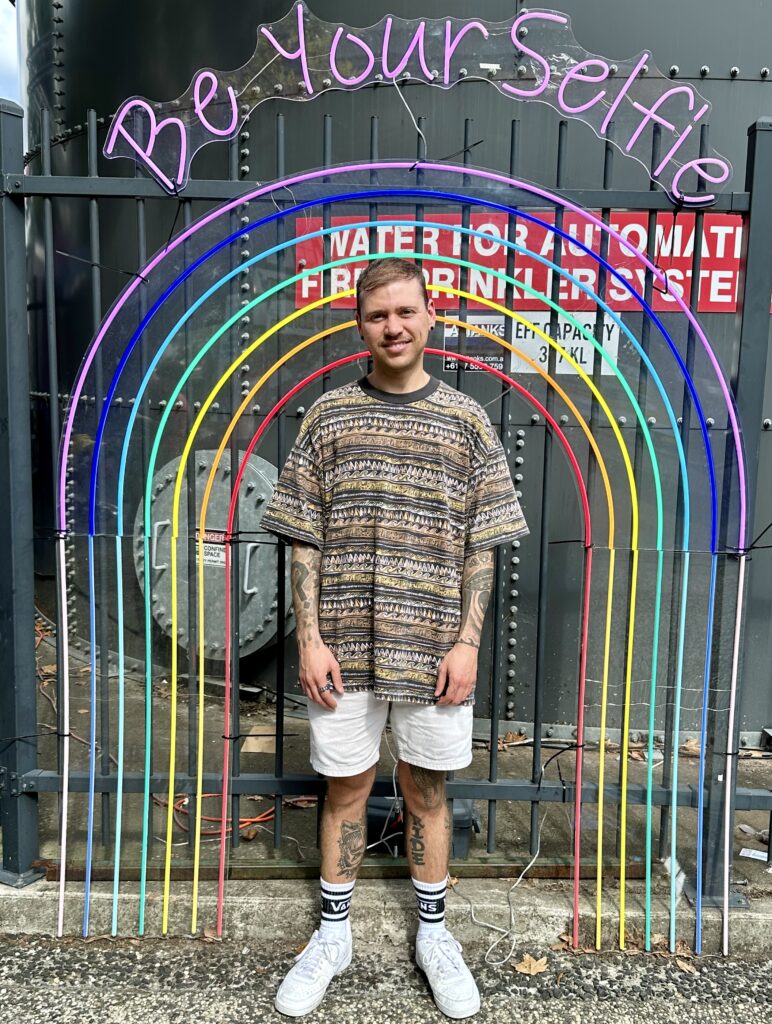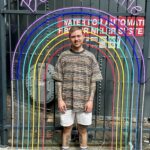Unmasking eating disorders among people in the LGBTQIA+ community
My anorexia allowed me to suppress my feminine features.

Unmasking eating disorders among people in the LGBTQIA+ community
I was 15 when my father noticed money missing from his wallet. He asked if I had taken it. I said, “No.” However, after hours of being accused of taking drugs and screamed at to the point of having spit on my face and crawling into a ball in the corner of my room, I said, “Yes.” When Dad asked why, I said my brother was being bullied, and I was paying them off…and this is where MY TROUBLES REALLY began. My lies created a web that formed a mask I was afraid to take off and didn’t think I ever could.
Four years later, I was diagnosed with Anorexia Nervosa (AN) and found myself sitting in front of a stranger in a dimly lit room. I was being asked to share my story.
When I spoke my truth, no one believed me, but when I lied, I convinced the whole world.
No matter how farfetched my stories became, they were more acceptable than the reality that I was living. I told the therapist at the hospital that I was sexually assaulted at knifepoint, the act was filmed, and that I was extorted for money to prevent the video from being leaked. I hated myself for lying. The guilt that I carried made me sick, but when I wore that mask, I was seen. I was somebody. I mattered.
Lonely and scared, struggling with my gender identity
There was some truth to this story among the string of lies. At the age of 17, I was sexually abused by a member of my extended family, which I had buried deep inside my soul and tried to erase from my memory. I was also giving money to some boys at school, but not because they were bullying my brother or because I was sexually abused on camera and extorted for money to prevent the video from being shared. I was giving money to these boys because I was incredibly lonely and scared and carrying a heavy burden inside me with nowhere to share it safely – I was struggling with my gender identity. I couldn’t navigate this world in a female body.
Growing up as a trans kid in the 90s and early 2000s was incredibly challenging. I was bullied every day at school. The older boys would take photographs up my dress to see what genitals I had before throwing wet toilet paper at me.
I was paying people so they would like me
Nobody wanted to be my friend. Then, one day, a boy came up to me at the canteen and asked to borrow $2, and when I gave it to him, he gave me a high five and sat next to me in class later that day. I thought he wanted to be my friend. I didn’t realise he was taking advantage of the situation to get money. I gave this boy and a handful of other students hundreds and thousands of dollars I had stolen.
I was paying people so they would like me, but how could I possibly explain this when I was a child and didn’t understand my behaviour myself? Also, I was hesitant to speak out about being sexually abused for fear those around me would say that was the reason I presented as more masculine. I felt deeply misunderstood.
I believed anorexia was saving me from this living hell
I also resisted recovering from my eating disorder because I believed that AN was saving me from this living hell. My eating disorder was far more complex than just eating my way out of it. Suppressing my weight allowed me to suppress my feminine features. I didn’t know anyone like me, or see my story represented anywhere in treatment settings. I thought if I shared my truth, I would be taken to a psychiatric unit where I would be medicated and told I was psychotic. I did not know about the term “transgender” until I was 23 years old.
There is a high prevalence of eating disorders among people in the LGBTQIA+ community in Australia, where I live. There is also a dire shortage of safe, accessible and inclusive services in eating disorder treatment and care.
Stories of hope: a catalyst for healing
Story-sharing is what has made a difference for me. When I saw myself represented in stories of hope, only then could I connect with my own story and heal. Seeing others like me and hearing their stories meant I wasn’t alone in my struggles. It took me years to make the connection that my gender identity was a barrier to my recovery from AN.
I am forever grateful to the therapist who fought against all odds in a religious hospital to run an LGBTQIA+ support group that wasn’t even allowed to have its details appear on the hospital website or the noticeboard in the hospital foyer. This support group changed my life. It didn’t focus on relieving symptoms of mental illness. Instead, it provided a safe space where I could embrace my perfectly imperfect self, reduce shame and stigma and experience genuine human connection. In this group, I could finally remove the mask and reveal the real me.
If I could sit with younger Reece right now as the 33-year-old person I am today, I would wrap my arms around him and hold him tight, and I would say:
I see you, I hear you, and I love you. I’m sorry you had to squash your authenticity to receive love and care. It’s okay to be you in this world without judgment or severe consequences. It’s okay to have a voice and to express it.
I see your pain. I see the battle you are fighting, even if no one else can. I believe you. You are courageous and brave for sitting in your truth even though you can’t walk it.
I’m here to tell you that you can walk it now. Doing so might not feel safe, but I am here to walk with you. You can rely on me for love and protection. Your fear is understandable as you grew up in an unstable home environment where love was conditional.
I don’t have any conditions. I love you just how you are and am proud of you for trusting your own story. You deserve to love and be loved in this lifetime. You deserve the things that others around you deserve without proving anything to anyone.
You don’t need esteem outside yourself to feel worthy, loved, or accepted. You don’t need to lie to fit in or be seen. You are a beautiful soul by simply being you.






So wonderful to read your words of wisdom and self reflections. Written with authenticity and such a sense of hope and healing.
Those who read this and listen to your voice will find a solace and kindness which has always been the true you. X
Thank you for your heartfelt comment Liz. I have so much gratitude for the healing journey. It has been a true gift 🙏